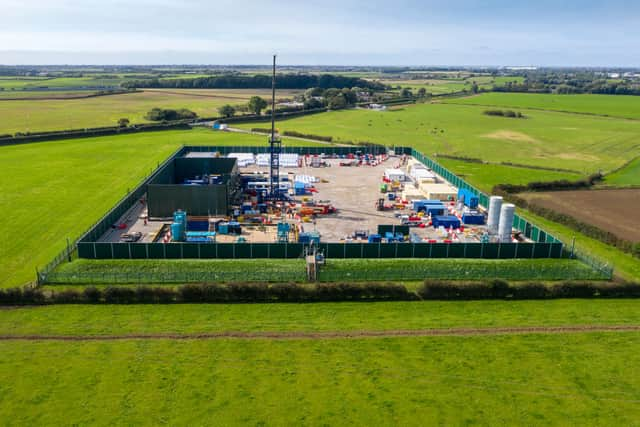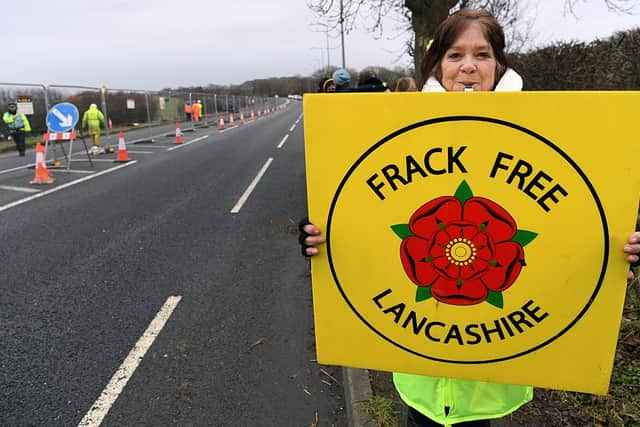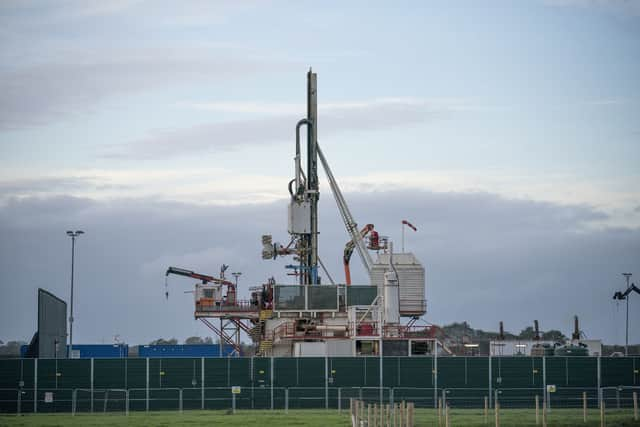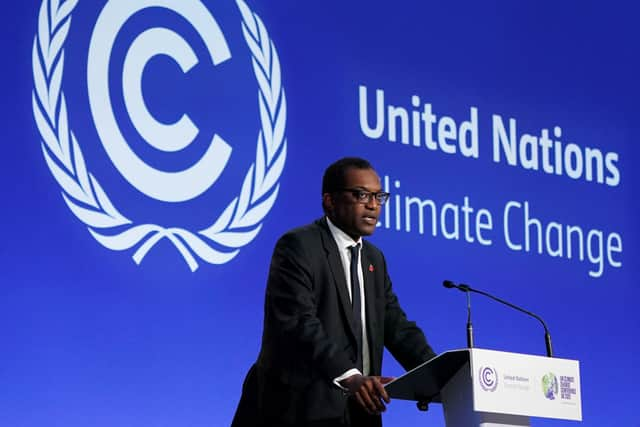What is the fracking ban? Moratorium meaning - will Rishi Sunak energy plan allow UK fracking sites to reopen
and live on Freeview channel 276
The new Prime Minister Rishi Sunak has marked a change form Liz Truss and reintroduced the fracking ban.
His predecessor Liz Truss controversially scrapped the ban, telling the public that fracking would be allowed in places where it had local support and where it would be proved to be safe. However, public opinion has remained firmly against fracking, especially when it come down to a local level.
The
But what is fracking - and why was it banned?


What is fracking?
Advertisement
Hide AdAdvertisement
Hide AdFracking, which is short for ‘hydraulic fracturing’, is an energy extraction process that aims to release the fossil fuels shale gas and/or oil from underground pockets.
It does this by pumping liquid deep underground at high pressure to fracture shale rock.
In doing so, the theory is that the gas contained within it is released - providing a source of energy.
But there is uncertainty about how much UK shale gas can be accessed in an economically viable manner.


Advertisement
Hide AdAdvertisement
Hide AdLiz Truss argues fracking is necessary because of soaring global energy prices - although it is likely any gas extracted in this way would be subject to the same market conditions.
Anti-fracking group Frack Off has a map showing several sites across the UK where fracking is being considered or exploration has taken place.
These include locations in: West Sussex, Surrey, Lancashire, Yorkshire, South Wales, Fife in Scotland and County Fermanagh and County Antrim in Northern Ireland.
Why was fracking banned?
Fracking exploration and testing took place in the UK over several decades between the 1970s and 2000s.
Advertisement
Hide AdAdvertisement
Hide AdDuring and after it was scaled up by company Cuadrilla at a site near Blackpool, Lancashire in 2011, 120 minor earthquakes were recorded.
One of these, which happened in August 2019, measured 2.9 on the Richter scale - a tremor that was strong enough to be felt by local residents.


As well as concerns over earthquakes, there are fears fracking could contaminate water - something that has already happened in the USA - and increase fossil fuel emissions.
It led to a moratorium - an indefinite suspension - of fracking in November 2019.
Advertisement
Hide AdAdvertisement
Hide AdCuadrilla was told to plug its wells by the government’s Oil and Gas Authority (OGA) in February 2022.
However, a backlash by Conservative backbench MPs meant this did not take place.
They argued the wells should be kept open for energy security purposes and would provide thousands of jobs.
Then-Business Secretary Kwasi Kwarteng - who is now Liz Truss’s Chancellor of the Exchequer - said at the time that lifting the ban “would take up to a decade to extract sufficient volumes — and it would come at a high cost for communities and our precious countryside.”
Advertisement
Hide AdAdvertisement
Hide AdBoris Johnson also said he was “slightly dubious” that fracking was the “panacea” his MPs thought it was during his final weeks as Prime Minister.
It was seen as a direct warning to his successor, Liz Truss, who supports the reintroduction of the energy extraction process.


A government-commissioned review into fracking by the British Geographical Survey was conducted during the Boris Johnson administration.
It looked at whether new drilling and well technology had reduced the risk of environmental issues.
Advertisement
Hide AdAdvertisement
Hide AdDespite being handed to ministers in July 2022, it is yet to be published.
What did Liz Truss say about fracking?
Liz Truss unveiled her energy security plan to a boisterous House of Commons on Thursday (8 September).
Among other policies, the new Prime Minister suggested the government was open to new applications for fracking sites. Citing “huge reserves of shale gas” under the UK, the PM said new wells could see extraction “where there’s local support for it”, adding extraction could start within six months.
The overturning of the fracking ban would “end the UK’s short-termist approach to energy security once and for all,” she said.
Advertisement
Hide AdAdvertisement
Hide AdHer scrapping of the ban was widely criticised, not only by opposition politicians, but also by environmentalists. Georgia Whitaker, oil and gas campaigner for Greenpeace UK said: “It will not lower bills. It will not make us less dependent on volatile gas markets. It will not reduce our carbon emissions. It may well not work at all because the UK does not have the vast empty expanses of the USA.
“The manifesto promise on which this government was elected was that fracking would not happen unless the science changed, which it most emphatically has not. Communities who have this nonsense inflicted on them in the name of an out-of-date ideology will be wondering who their elected representatives are really representing.”
The policy was also criticised by Truss’ own MPs, who had planned to vote in favour of a Labour motion to back the banning of the practice. However, this was thrown into confusion after MPs were told that it was in fact a confidence vote in Truss, before being told it was not then a confidence vote.
What did Rishi Sunak say about fracking?
Rishi Sunak took over as Prime Minister only 49 days after Liz Truss was first welcomed into the job. On his first day, he sought to draw a line under Truss’ contoversial policies, including that of fracking.
Advertisement
Hide AdAdvertisement
Hide AdThe moratorium was a 2019 party manifestio promise, and Sunak told the House of Commons that he “stands by” the party pledge during his first PMQs session. Green Party MP Caroline Lucas asked the new PM: “So, if he is a man of his word, will he start by reversing the green light she gave to fracking since it’s categorically not been shown to be safe, and instead maintain the moratorium that was pledged in that very manifesto that he promised to uphold?”
The Prime Minister replied: “I have already said I stand by the manifesto on that. But what I would say is that I’m proud that this Government has passed the landmark Environment Act, putting more protections for the natural environment than we have ever had with a clear plan to deliver.
“And I can give the honourable lady my commitment that we will deliver on all those ambitions. We will deliver on what we said at COP[26] because we care deeply about passing our children an environment in a better state than we found it ourselves.”
Comment Guidelines
National World encourages reader discussion on our stories. User feedback, insights and back-and-forth exchanges add a rich layer of context to reporting. Please review our Community Guidelines before commenting.
